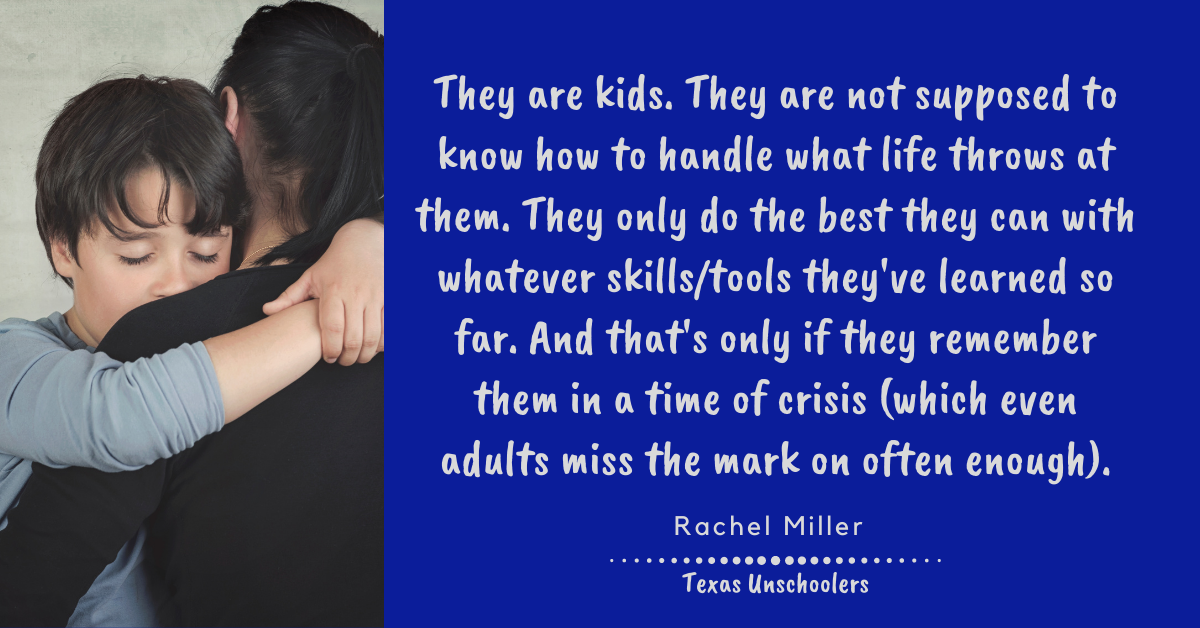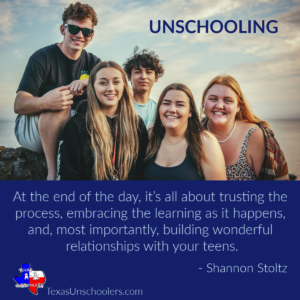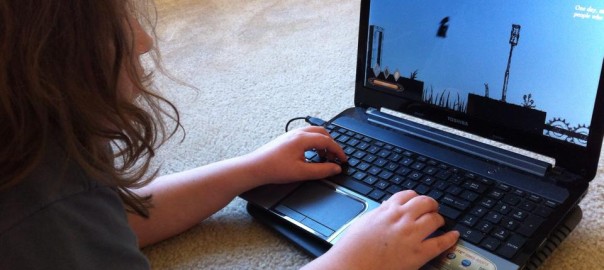You wouldn’t hand your 16-year-old the keys to your car one day and they immediately hit the freeway at 70mph.
They’ve watched you drive since they were born. Toddlers start to connect that a key is required to start the engine, that you move a stick on the steering column for turn signals, and that the pedals at your feet are amazing sources of power. You talk about things that you see or bother you or are difficult as you’re driving. You mention people speeding, cutting you off, or tailgating. You involve them in vehicle maintenance: pumping gas, checking tire pressure, changing the oil, etc. Then they start sitting in the passenger seat and paying more attention, asking questions. They get a learner’s permit and spend more time driving while you ride along observing and offering suggestions. You take them to the farm or a parking lot or wherever and they get to drive around a bit and park. Then you try calm side streets, then busier streets. They hopefully have opportunities to drive in the sun, rain, snow, etc. (granted snow is harder to come by in parts of Texas). Eventually, they go up on the highway and potentially work their way up to rush hour.
As you’re navigating the online world with your kids, consider starting their “Driver’s Ed” early so that you have plenty of opportunities to work through the various scenarios, concerns, issues, and problems that may come up.
And it begins…
Our children see that phones, tablets, computers, and gaming systems are incredible sources of information, communication, and enjoyment. Even very young children can use apps, make phone calls, and play games. When we play with them and foster their curiosity we’re not only helping them build skills but we’ve established another connection point that strengthens the relationship. Just as a young child rides in a car seat for extra protection – you may initially have preset apps or websites that they explore. As they better understand how to use various devices, I would encourage you to reduce restrictions.
Talk it out…
Verbalizing why we’re making the decisions that we’re making helps our children understand our choices. It also expands their personal options and helps provide potential solutions that are respectful of others.
I’m downloading apps/movies in case there isn’t WiFi available (or it isn’t very good).
I’m bringing headphones along so I can listen without disturbing anyone else.
Give me a moment to finish this level so that I can stop and really hear what you’re saying.
I’m going to check another source to see if that’s accurate.
Maybe there’s another app that better suits my needs.
I know Jill prefers messenger to text, so I’m going to contact her that way.
I’d like to turn off my ringer before we go inside so it won’t disturb anyone.
I like the survival aspect of Minecraft without the intensity of Five Nights at Freddy’s. How do I find similar games?
When they run into a complication, ask if they’d like ideas for possible solutions. Our son was in a situation where someone he initially enjoyed gaming with began texting him constantly, even if our son had expressed not wanting to play (or play a particular game). We walked through options. For example – like how our son could be more clear about a length of time. Instead of saying, “not now”, he would reply, “How about Friday?”.
Learner’s permit…
So many of these online resources rely on e-mail to create a login and to track individual preferences or achievements. I strongly recommend creating an e-mail address dedicated for each of your children. Shared family accounts make it difficult, sometimes impossible, to play together. Since my husband and I already had gmail accounts – it was easiest for us to create an e-mail for our children through Google. (Now, you can just create a single Google account to be used for e-mail, YouTube, Drive, etc.) In the settings, we chose to have their incoming emails automatically forwarded to ours so that we didn’t have to constantly log-out of our e-mail to log-in to theirs. This allowed us to help them process the information/emails they were receiving. (Our daughter still has no interest in her e-mail and never checks it herself.)
Most online log-ins will ask how old the person is. Some people use their children’s actual birthdays under the assumption that it will provide protection for them (especially if they’re under 13). Unfortunately, we’ve found this actually makes things more difficult and removes our ability to make parental judgements as to whether or not something is appropriate/useful for a particular child. For instance – Skype will not let you create an account if the birth date provided is under 13. Our entire family sharing one account is a logistical nightmare (especially since we’ve been known to Skype each other within the house). So, we use the parent’s birthdays and they each get their own account to use.
Get your own accounts too. My husband and I have accounts on Minecraft, Steam, Origin, Roblox, Skype, Facebook, Twitter, Instagram, Snapchat, YouTube, School of Dragons, League of Legends, Khan Academy, Coursera, etc. Anything that interests them. This has the dual advantage that we have a better understanding of what & how they are learning because we’re witnessing and experiencing it ourselves and it’s an opportunity to strengthen our relationship. We don’t know everything about every game or YouTube channel. We certainly don’t play or watch as much as our children, but when we watch or play with them, we learn the “lingo”. Gaming terms such as DLC, NPC, FPS, as well as the names of their favorite YouTubers. Later, when we can’t play with them, but they’re telling us about a new app, game, or YouTube upload (like while I’m cooking dinner) – we can fully participate in the conversation because we know what they’re talking about.
Driving on their own…
For our family, keeping the lines of communication open and being positively involved in their online/gaming life has been the best way to help them navigate that realm. Some parents rely on stringent internet blocking software or tight personal controls on their children’s activity. Unfortunately, this can provide a false sense of security and at worst, can result in children who rebel in secret with no guidance. There are numerous ways around parental controls and filtering. Tech savvy kids can circumvent blocks, set up secondary accounts/e-mails, acquire their own devices, and access the internet outside of your home. By setting up accounts/access early, by asking questions without judgement, by offering gentle information about pitfalls, and by allowing them to make mistakes – we have fostered a trusting and supportive environment they don’t feel the need to circumvent.
Don’t forget the insurance…
Accidents happen. Other drivers are careless. Sometimes we make a poor decision in an unfamiliar situation.
Downloading new games and content can be scary. No one wants to have their computer overrun by malicious programs. Invest in good anti-virus and anti-malware protection. Downloading mods for Minecraft and other games is incredibly popular. Together, you can learn how to research developers, recognize the difference between an ad and the actual download, and how to fully remove unintended downloads. Consider adding a password requirement to prevent unintentional downloads or in-app purchases on phones & tablets. It was ME who inadvertently spent $10 on a special character in a free app that instituted the password requirement. We don’t use it to block the kids, just as an extra “alert” that we’re about to spend money. Talk about internet safety like not sharing personal information to strangers and ways to respond to bullying.
If you’d like to talk with other Unschooling families about possible solutions to concerns, learn more about facilitating your children’s interests, or just meet more people on this journey – please join us on the Texas Unschoolers Facebook Group.
-Rachel
Learn more about Rachel on our Contributors page.
Image credit: Rachel Miller (our son playing Color Symphony on Steam)

![]() )
)




